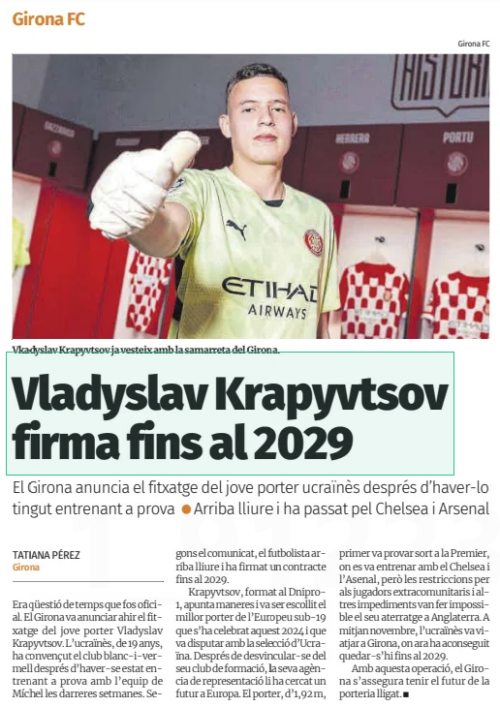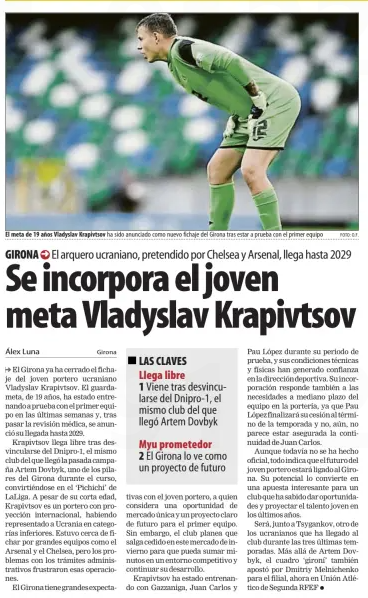Arsenal have missed out on signing 19-year-old Ukrainian goalkeeper Vladyslav Krapivtsov, with Brexit-era regulations blocking the move and highlighting the post-Brexit challenges facing Premier League clubs in acquiring young international talent.

Krapivtsov, a standout at the 2024 UEFA European U-19 Championship, where he was named the tournament’s best goalkeeper, had trained with both Arsenal and Chelsea this autumn.
Despite impressing both clubs, the restrictions on non-EU players made it impossible for him to secure a work permit in the UK.
Girona capitalised on the opportunity, signing Krapivtsov on a free transfer until 2029.

The young goalkeeper had been seeking a new club after leaving SC Dnipro-1, and with options in England thwarted by bureaucratic hurdles, Girona offered a platform for his development in La Liga.
Krapivtsov has now joined a growing contingent of Ukrainian players in Girona, further underlining Spain’s openness to young international talents compared to the increasing difficulties of navigating the UK’s points-based work permit system.
Before Brexit, a move like Krapivtsov’s to Arsenal would have been relatively straightforward. However, the UK’s departure from the EU introduced stricter requirements for non-EU players aged 18 to 21.
Work permits are now granted based on a points system that evaluates factors such as international caps, senior playing experience, and the competitive level of the player’s current league. Krapivtsov, despite his accolades and international youth experience, could not meet these stringent benchmarks due to limited senior exposure.
Arsenal’s failure to secure Krapivtsov is emblematic of the broader consequences Brexit has imposed on English football. Clubs with a strong tradition of nurturing young international talent now face significant barriers to signing promising players from outside the EU.
Talents like Krapivtsov, who might previously have developed into key players within Premier League academies, are being signed by clubs in leagues with more accommodating regulations.
For Krapivtsov, the move to Girona represents a chance to rebuild momentum in his career after a frustrating transfer saga. The Spanish club sees him as a long-term investment, likely to gain experience on loan before potentially stepping into the first team.
Meanwhile, Arsenal and Chelsea are left reflecting on the growing challenges of maintaining their pipelines of young global talent in a post-Brexit football landscape.